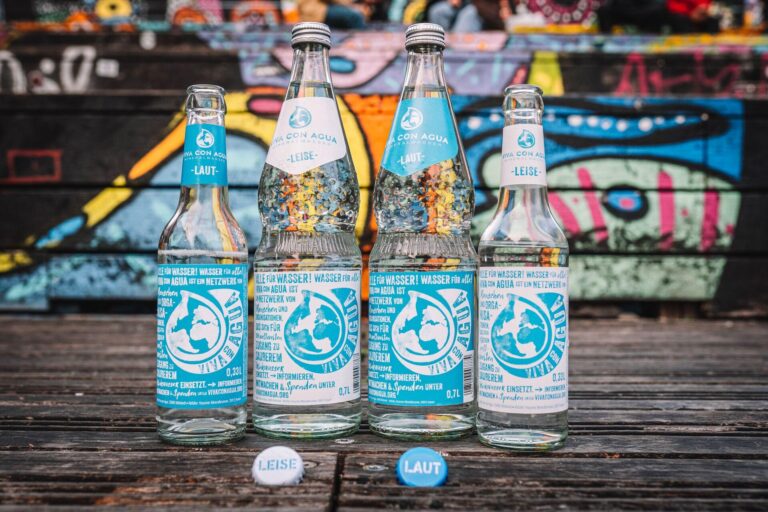With the growing concern about sustainability and reducing the use of disposable plastic, the topic of reusing bottles for water consumption has become a relevant topic. In this context, this article aims to address the importance of using reusable bottles as a sustainable practice in water intake. The environmental and social impacts of using disposable bottles will be discussed, as well as the advantages and challenges of adopting reusable bottles. It is expected that this work will contribute to reflection and awareness about the importance of choosing sustainable bottles for water consumption.
Introduction: the importance of sustainability when choosing reusable bottles
When thinking about ways to contribute to preserving the environment, it is important to consider even small everyday habits, such as water consumption. In this context, choosing reusable bottles is a sustainable and responsible alternative, contributing to the reduction of plastic waste and other materials that are harmful to the environment. This article explores the importance of sustainability in choosing reusable bottles, highlighting the benefits and positive impacts that this decision can bring to the planet and to our own health.
Given the growing environmental problem caused by the improper disposal of plastic waste, the search for more ecological solutions has become an urgent need. Choosing reusable bottles not only reduces the production of plastic waste, but also promotes awareness of the importance of sustainable practices and the rational use of natural resources. Furthermore, by choosing reusable bottles, we contribute to reducing the demand for disposable plastic, encouraging the industry to adopt more sustainable and responsible practices in its production.

Advantages of reusable bottles compared to disposable bottles
Reusable bottles represent a sustainable and environmentally friendly alternative to disposable bottles. In addition to reducing environmental impact, reusable bottles offer several advantages that contribute to a healthier and more environmentally responsible lifestyle. By opting for reusable bottles, you are making a conscious choice that benefits the environment, your health and your wallet.
One of the main advantages of reusable bottles is the reduction of plastic waste. By reusing the same bottle over time, you are making a significant contribution to reducing plastic pollution in the oceans and landfills. In addition, reusable bottles are a more economical option in the long term, as you do not need to buy disposable bottles as often. Additionally, reusable bottles are often more durable and resistant than disposable bottles, which means they will last longer and, consequently, reduce your ecological footprint. Finally, reusable bottles offer the possibility of customization, allowing you to choose the style, color and design that best suits your personal taste.

Sustainable materials for reusable bottles: options and recommendations
When it comes to reducing plastic consumption and adopting more sustainable practices, choosing reusable bottles made from sustainable materials is crucial. There are several material options and recommendations that can guide you in selecting the best reusable bottle for a more sustainable lifestyle. Reusable bottles made from materials such as glass, stainless steel, silicone, and recycled plastic are excellent options for those looking to reduce their environmental impact and promote sustainability.
Glass bottles are a popular choice for those looking to avoid using plastic. They are durable, odor-free, and easily recyclable. Additionally, stainless steel bottles are excellent options for those looking for durability and practicality, as they are lightweight and resistant. Bottles made of silicone are flexible, lightweight, and easy to clean, making them a great option for outdoor activities. Finally, bottles made from recycled plastic are a sustainable choice, as they help reduce the amount of discarded plastic.

Sustainable practices and habits when using reusable bottles: tips and guidelines
How to drink water sustainably: reusable bottles
Using reusable bottles is a sustainable practice that contributes to reducing the use of disposable plastic and preserving the environment. However, it is important to adopt habits and practices that ensure the effectiveness and safety of using these bottles. Here are some tips and guidelines to make the use of reusable bottles more efficient and environmentally responsible:
- Wash regularly: Keep your reusable bottle clean by washing it regularly with soap and water. This prevents the growth of bacteria and maintains the quality of the water.
- Avoid harmful materials: When choosing a reusable bottle, opt for safe materials such as stainless steel, glass or BPA-free plastic, which are durable and easier to recycle.
- Use filtered water: Prefer to fill your reusable bottle with filtered water, which reduces the consumption of bottled water and contributes to reducing plastic waste.
Furthermore, by using reusable bottles, you are contributing to the reduction of plastic waste and the preservation of natural resources. Choosing sustainable practices when using reusable bottles not only benefits the environment, but also promotes a healthier and more conscious lifestyle. By adopting these habits, you are doing your part to protect the planet for future generations.
Perspectives and conclusions
In short, it is vital to incorporate sustainable practices into our daily lives, including in the way we consume water. Using reusable bottles not only helps reduce the amount of plastic waste, but also promotes the conservation of natural resources and the reduction of the carbon footprint. By adopting this practice, we are contributing to the preservation of the environment and the promotion of a more sustainable future for future generations. Therefore, it is essential that each individual does their part and chooses reusable bottles when consuming water, as a small gesture that can have a big impact. Together, we can promote positive changes for the well-being of our planet.






